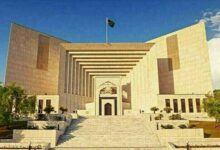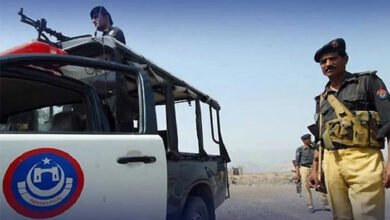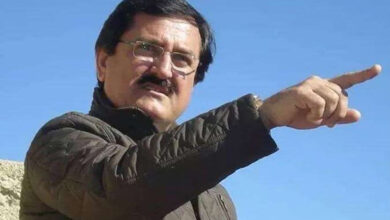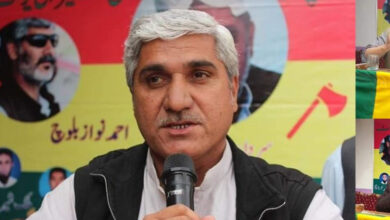Civilian Trial in Military Court: Expanding Powers to Try Civilians, Justice Musarat Hilali Remarks

Islamabad: The Supreme Court’s constitutional bench today adjourned the hearing on various cases, including allegations of election rigging, while continuing the proceedings concerning military courts. During the hearing, Justice Musarat Hilali commented that expanding the powers of military courts is allowing civilians to be tried in such courts.
The hearing began with the bench’s head, Justice Amin-ud-Din Khan, clarifying that only military court cases would be heard on this day.
During the proceedings, the lawyer representing the Ministry of Defence, Khawaja Haris, argued that the Supreme Court had previously acknowledged the authority of military courts to try civilians under certain circumstances, specifically citing that civilians can be tried under court martial if they engage with military affairs.
Justice Jamal Mandokhel raised a crucial point about whether the affected party and the appellant were properly identified in the case. Khawaja Haris clarified that the appeal had been filed by the Ministry of Defence. Justice Mandokhel questioned whether an executive body like the Ministry of Defence could judge itself, as the Constitution clearly separates the powers of the executive and the judiciary.
Justice Mandokhel argued that the law provides an alternative forum for such cases—counter-terrorism courts—and it is not appropriate for the executive to act as a judge in these matters. He also emphasized that the Army Act is specifically meant for the discipline and performance of the armed forces, not civilians.
Khawaja Haris contended that if no other forum is available, the executive could decide, but Justice Mandokhel countered by pointing out that the law already offers specific legal forums for such issues. The Army Act, Justice Mandokhel said, applies only to military personnel.
Further discussion revealed conflicting interpretations of the Army Act’s scope. Khawaja Haris argued that it is not limited to the armed forces, but Justice Mandokhel insisted that the Act is clearly aimed at regulating the conduct of military personnel.
The court also discussed the issue of trial locations, with Justice Musarat Hilali asking whether a civilian could be tried by a military court for a dispute involving a military checkpoint. She noted that the issue of expanding the scope of military trials to include civilians is becoming more complex.
Justice Muhammad Ali Mazhar divided the case into two parts: one dealing with the potential annulment of certain sections of the Army Act, and the other concerning the trial of civilians by military courts.
As the hearing progressed, the father of Hassan Niazi, the nephew of former Prime Minister Imran Khan, who had been sentenced by a military court, took to the rostrum. Hafeezullah Niazi highlighted that the prisoners sentenced in Lahore were being held in high-security zones without basic rights, as outlined by the jail manual.
Justice Muhammad Ali Mazhar inquired why these convicted prisoners were being denied their rights under the jail manual. The Supreme Court subsequently ordered the Punjab government to respond to these claims.
Hafeezullah Niazi also criticized the lack of detailed reasoning behind the sentences handed out to those convicted, including his son. Justice Musarat Hilali noted the absence of detailed reasoning for the sentences.
The Supreme Court adjourned the case until the next day, with Justice Amin-ud-Din Khan clarifying that only the military court cases would be heard during the next session, and all other constitutional bench matters would be postponed.






